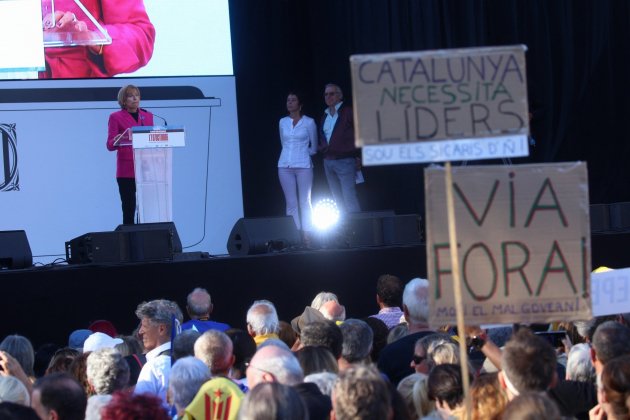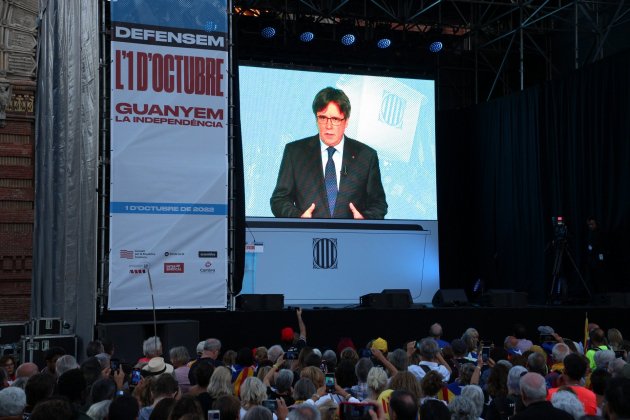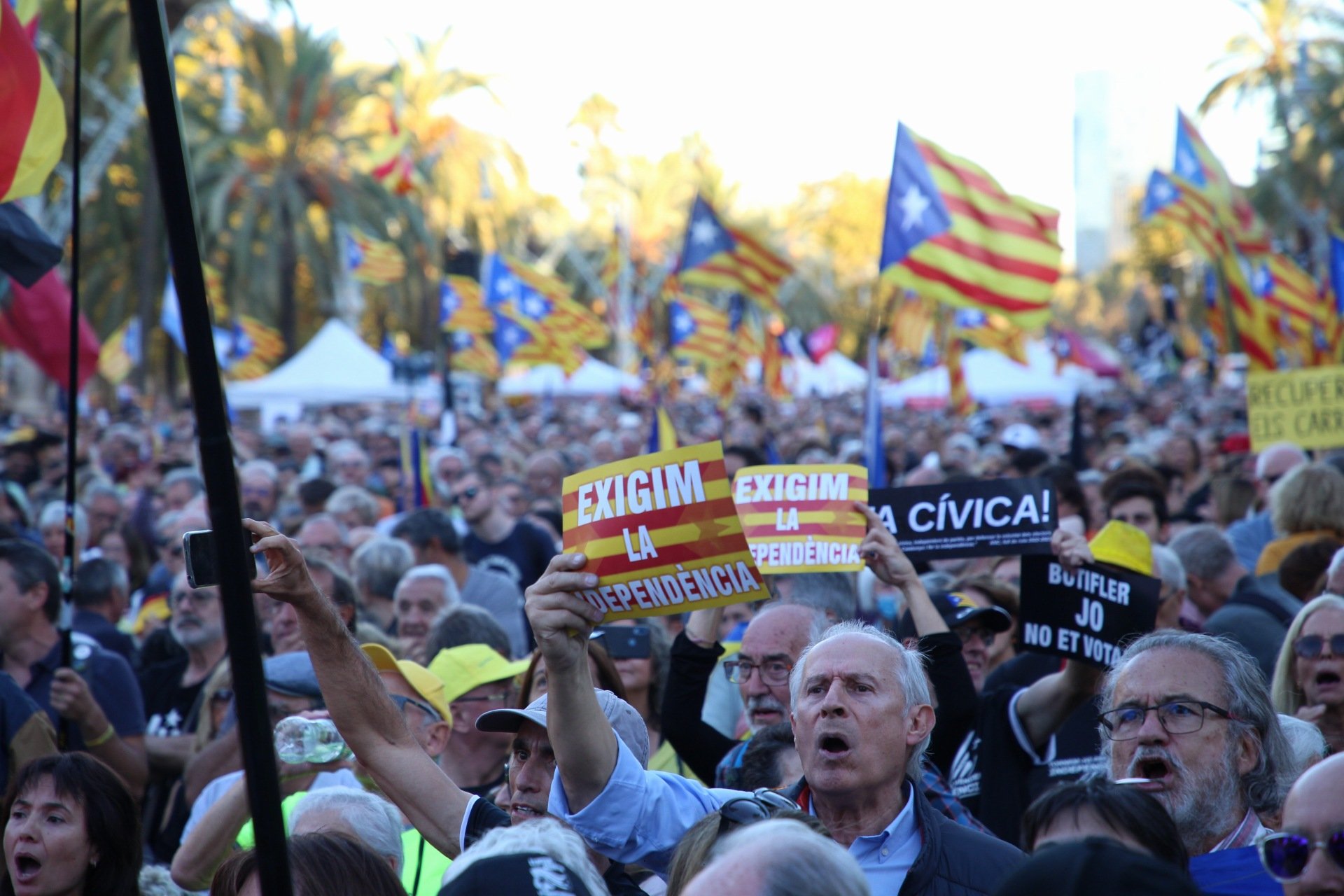The bitter division between the proponents of different strategies for reaching Catalan independence left its mark on the event organized in Barcelona this Saturday to mark the fifth anniversary of the 1-O, the self-determination referendum held on October 1st, 2017. Amidst the deep crisis between the two Catalan government coalition partners, which has led to the dismissal of vice president Jordi Puigneró (Junts) by president Pere Aragonès (ERC) and the possible departure of Junts from the executive, and only three weeks after the Diada demonstration from which the ERC leadership absented itself, the main political parties and pro-independence organizations were desperate to regain unity. The event sought to demonstrate transversality and understanding between the forces, despite the divergence of strategies. But in the end, what was most evident was the vast divide separating the thousands of people who gathered in front of the Arc de Triomf in defence of the validity of the referendum, and a political leadership that, according to the grass roots of the movement, has abandoned the 1-O.
The first signs were given at the very start of the event, when it was recalled that the Spanish state's repression had, among other consequences, led to the situation of there being five people in exile who were unable to come personally to Barcelona. The names of Lluís Puig, Clara Ponsatí and Toni Comín, from the Junts space, received loud applause, and this multiplied when the name of Carles Puigdemont was read, prompting a shower of praise and chants of "president". Only one of the figures in exile was criticized: the name of the ERC general secretary, Marta Rovira, provoked jeers strong enough to silence any applause among the public.
The ERC space also could not avoid the crowd's derision, a few moments later, when senior ERC figure Carme Forcadell went on stage. Despite her frequently honoured past, as the speaker of parliament when the referendum was held on 1st October, and previously, leader of the Catalan National Assembly (ANC), and even the fact that she had attended this year's Diada demonstration when most of her party did not, did not prevent the whistles and chants from prevailing over the applause. During her speech, calls of "traitor" and "out" were heard among the public, and only a very few saluted her as "madame speaker". Forcadell pushed through her speech despite criticism from those attending, which intensified when she called for "a common strategy" between all the parties so that "transversality strengthens". "Let's stop fighting," she demanded over the whistles. The ERC politician ended up leaving the stage visibly resigned to the reception she was getting from the public, although not without first referring to it: "Many of you are angry, disappointed and disillusioned. I understand that and I share it."

The speeches by the leaders of the main pro-independence non-governmental organizations also reflected the great chasm between their strategies and the clamors from the demonstrators. Òmnium Cultural and the Association of Municipalities for Independence (AMI) both received strong criticism when they urged the unity of the independence movement. From Òmnium's Xavier Antich, the call to "sit down and talk to overcome the current negative dynamic", as well as his warning that "there is no alternative to finding agreement" was heavily hissed. The Omnium president was even forced to pause his speech for a few long moments due to the loud disapproval of the crowd. And Jordi Gaseni noted, similarly, the general rejection caused by his support for an attempt by ERC and Junts executives to try and reconcile their differences. "We need a strong Government, we all need to be there", said the AMI president, but he drowned out by the massive call for the resignation of the government.
Carles Puigdemont and the ANC get all the warmth
One of the few figures who managed to escape without generating criticism from those attending was Carles Puigdemont. In fact, the president-in-exile, who spoke live via telematic means, was enthusiastically welcomed by an audience that, for long periods, remained silent listening to his words. A tranquility that was broken after several messages from Puigdemont, such as his "immense thanks" to the citizens who made the 1-O possible, his warning that those "delusional undertakers" should give up any hope that the people will forget about independence, and his defence that "there is no need to repeat" any referendum because the 2017 one is still valid, as opposed to the "clarity" proposal of the Catalan president, Pere Aragonès. Even his appeal for the unity of the independence movement was well received: "The only table to which we must chain ourselves is the dialogue table between the siblings of Junts, ERC, the CUP, Òmnium and the Assembly". Unlike the other speakers who spoke along these lines, Puigdemont was applauded.

The Catalan National Assembly (ANC), as well, was welcomed with open arms. In her speech, Dolors Feliu saw how her strategy, marked by the desire to put an end to the dialogue table with the state and start a new democratic attack in the short term, was strongly applauded. Her criticism of the "immobility" of the parties was warmly received by the public, as well as her call to "open new paths". Thus, the ANC president returned to the threat of a early election and a civil list, bypassing the parties, if the Catalan government does not comply with its pro-independence mandate.

